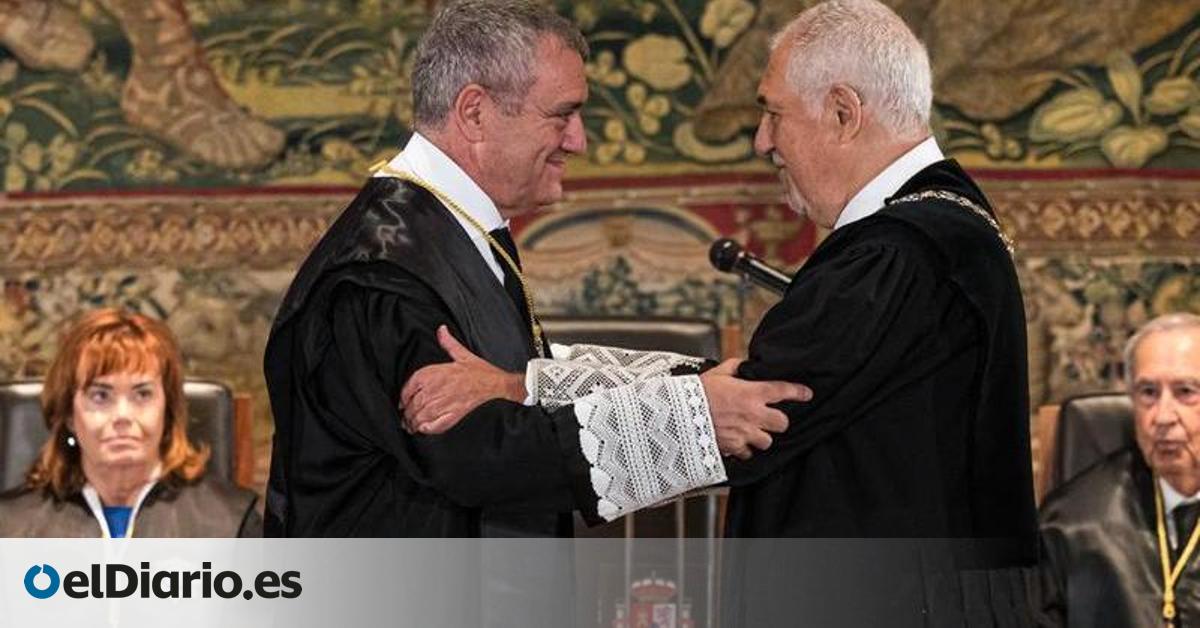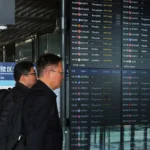
The Public Prosecutor’s Office has asked the Constitutional Court that José María Macías, the last magistrate to join the plenary session, be removed from deliberations related to the amnesty law, which he has publicly opposed over the past year. The Public Prosecutor’s Office believes that Macías cannot be the rapporteur of the Popular Party’s appeal because during his time as a member of the General Council of the Judiciary he had “direct participation” in “official actions” of the Council against the amnesty, for example issuing a report against it, which for the Public Prosecutor’s Office represents “an extensive, reasoned, reiterated, detailed and categorical” assessment of the law.
The Public Prosecutor’s Office has presented this recusal, signed by the Attorney General Álvaro García Ortiz, against Macías in the first matter related to the amnesty that it has had to study: the question of unconstitutionality presented by the Criminal Chamber of the Supreme Court. Its arguments are, however, applicable to the 20 challenges that have been presented against the norm, including by the PP itself, an appeal of which Macías is the rapporteur.
During his time as a member of the CGPJ, Macías led a group of members who actively opposed, among other government measures, this amnesty law, forcing the issuance of a contrary report that had not been requested from them at the beginning. Participating in this report, according to the Prosecutor’s Office, was “an act genuinely proper to the performance of the public office he held” and with which he “directly participated in the matter that was the subject of the lawsuit or case.” Macías’ participation was not something “purely formal,” says the Prosecutor’s Office, but is “obvious.”
The Prosecutor’s Office is not focusing on his public opinions against the amnesty expressed in interviews and various interventions. “Something unusual in Spanish democracy,” he said in one interview. “He does not seek the general interest, but that of Sánchez,” he said in another. Last March, he even hinted at the possibility of reforming the law so that the processing of the amnesty would have criminal consequences for those responsible. He has also questioned whether the most effective way to analyse the amnesty is, precisely, the one he now has to exercise as rapporteur of the PP’s appeal against the amnesty.
The Constitutional Court has received more than 15 appeals of unconstitutionality presented by both the PP and the autonomous communities it governs, some regional parliaments and Castilla-La Mancha. The first challenge to be admitted for processing was the question of unconstitutionality presented by the Criminal Chamber of the Supreme Court. For the moment, the only abstention accepted for these deliberations had been that presented by the former minister Juan Carlos Campo.
His clearly anti-amnesty stance and his participation in opposing the law when he was a member of the Council, the Prosecutor’s Office concludes, implies “the inevitable image of forming a solid prejudice on each of the doubts submitted to the constitutional jurisdiction, which he now has to exercise.” For the moment, as explained by elDiario.es, Macías has not only not withdrawn but has begun to process the PP’s appeal in view of its possible admission to proceedings. The Prosecutor’s Office recalls that the magistrate himself has withdrawn in recent days from an appeal related to a decision of the plenary session of the Judicial Power Council on disciplinary matters when he was a member.
Source: www.eldiario.es

